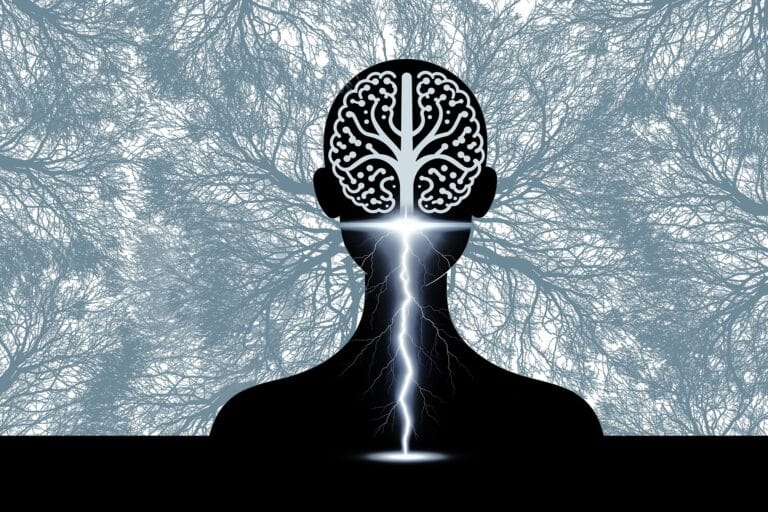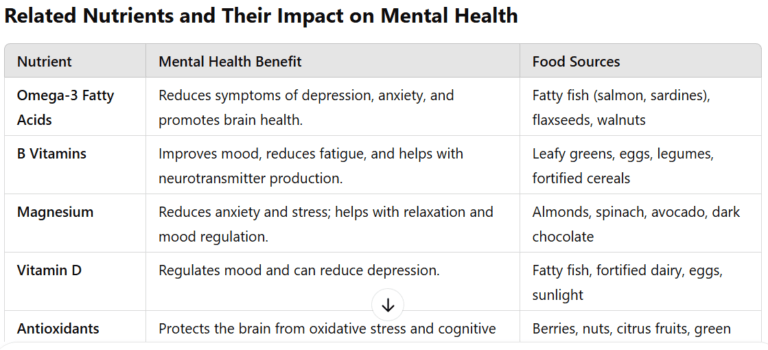At MindForge Foundation, we understand that mental health is influenced by a variety of factors—psychological, emotional, and environmental. However, one crucial aspect often overlooked is the role of nutrition in mental health. In recent years, research has shown that what we eat can significantly influence our mood, cognitive function, and overall emotional well-being. In this blog, we explore how diet impacts mental health, the connection between nutrition and emotional well-being, and practical tips for enhancing mental health through diet.
Understanding the Mind-Body Connection

The connection between the brain and the body is complex, and the food we consume directly affects how our brain functions. Our brain requires specific nutrients to operate effectively, and deficiencies in certain vitamins, minerals, and essential fatty acids can lead to mood swings, anxiety, depression, and other mental health disorders. At MindForge Foundation, we believe that supporting mental health goes beyond therapy and counseling—it involves a holistic approach, including proper nutrition.
The Science Behind Nutrition and Mental Health
The foods we consume provide essential nutrients required for neurotransmitter production, hormone regulation, and brain cell health. Let’s break down how specific nutrients can positively impact mental health:

1. Omega-3 Fatty Acids
Omega-3 fatty acids, found in fatty fish like salmon, sardines, and mackerel, are essential for brain health. These fats maintain the structure of brain cells and facilitate communication between neurons. Studies have shown that omega-3 fatty acids can reduce symptoms of depression and anxiety. For those who don’t consume fish, chia seeds, flaxseeds, and walnuts are great plant-based sources.
2. B Vitamins
B6, B12, and folate are crucial for brain function. They help produce neurotransmitters such as serotonin and dopamine, which regulate mood and emotional well-being. Deficiencies in these vitamins are linked to depression, irritability, and fatigue. Foods like leafy greens, eggs, legumes, and fortified cereals are rich sources of B vitamins.

3. Magnesium
Magnesium is often referred to as the “relaxation mineral.” It plays a key role in regulating the body’s stress response by influencing the release of stress hormones like cortisol. Low magnesium levels have been linked to increased anxiety and depression. Magnesium-rich foods include dark chocolate, almonds, spinach, and avocado.
4. Vitamin D
Known as the “sunshine vitamin,” Vitamin D plays an essential role in overall health and maintaining mental health. Low levels of vitamin D are linked to depression, fatigue, and a weakened immune system. Fatty fish, fortified dairy products, eggs, and sunlight exposure are excellent sources of Vitamin D.
5. Antioxidants
Antioxidants like vitamin C, vitamin E, and selenium protect the brain from oxidative stress and inflammation, which can contribute to mental health disorders. Foods like berries, nuts, citrus fruits, and green leafy vegetables are packed with antioxidants and help protect the brain from cognitive decline and mood disturbances.
How Gut Health Affects Mental Health
In recent years, a fascinating connection has been discovered between gut health and mental health, commonly referred to as the gut-brain axis. The gut contains trillions of bacteria that not only support digestion but also influence the production of neurotransmitters like serotonin, which regulate mood and emotions.
A healthy gut microbiome is critical for mental well-being. A diet rich in prebiotics and probiotics, found in foods like fermented products (yogurt, kefir, kimchi) and fiber-rich foods (whole grains, fruits, vegetables), can help maintain gut health and, in turn, improve mental health.
The Link Between Sugar and Mental Health
While consuming sugar in moderation is part of a balanced diet, excessive sugar intake has been linked to a variety of mental health issues, including mood swings, anxiety, and depression. High sugar intake can cause blood sugar spikes and crashes, which result in irritability and fatigue. To promote mental well-being, it’s important to limit refined sugars and opt for natural sweeteners like honey or stevia.
Practical Tips for Improving Mental Health Through Diet

1. Eat a Balanced Diet
Incorporate a variety of whole foods, including fruits, vegetables, lean proteins, and whole grains into your meals. A balanced diet ensures that you’re receiving the necessary nutrients for optimal brain function and emotional well-being.
2. Focus on Healthy Fats
Include sources of healthy fats like avocados, nuts, seeds, olive oil, and fatty fish in your diet. These fats are essential for brain health and can reduce symptoms of depression and anxiety.
3. Stay Hydrated
Hydration is essential for mental clarity and focus. Dehydration can lead to irritability, fatigue, and poor concentration. Drink plenty of water, herbal teas, and electrolyte-rich drinks to keep your brain functioning at its best.
4. Limit Processed Foods and Caffeine
Processed foods, which are often high in refined sugars and unhealthy fats, can negatively affect mental health. Similarly, excessive caffeine consumption can contribute to anxiety and sleep disturbances. Opt for whole foods and limit your intake of processed foods and caffeine.
5. Consider Supplements
While it’s always best to get nutrients from food, some individuals may benefit from supplements to support their mental health. Omega-3 supplements, B-vitamin complexes, and probiotics are common choices, but always consult a healthcare professional before introducing any new supplements into your routine.
MindForge Foundation’s Commitment to Holistic Mental Health
At MindForge Foundation, we believe that true mental well-being is achieved through a holistic approach that combines therapy, counseling, and an emphasis on the role of nutrition in mental health. Our commitment to personalized mental health care ensures that each individual receives tailored support to help them heal, grow, and thrive. Whether you’re looking for psychologists near you or need help with diet-related emotional struggles, our expert team is here to guide you toward wellness and empowerment. We provide the necessary tools to improve emotional well-being and foster lasting change.
Conclusion:
As we continue to explore the role of nutrition in mental health, it becomes clear that the food we consume plays a crucial part in shaping our emotional well-being. By incorporating nutrient-dense foods, healthy fats, and essential vitamins and minerals into our diet, we can enhance mental health, elevate mood, and support brain function. Understanding the role of nutrition in mental health is essential for holistic wellness. At MindForge Foundation, we are dedicated to helping you achieve emotional well-being through expert therapy, counseling, and support. Remember, a healthy mind starts with a healthy body, and proper nutrition is one of the most important steps toward emotional balance and resilience.

An eye-opening perspective! Nutrition plays a crucial role in mental well-being, yet it’s often overlooked. Thanks for highlighting this important connection!